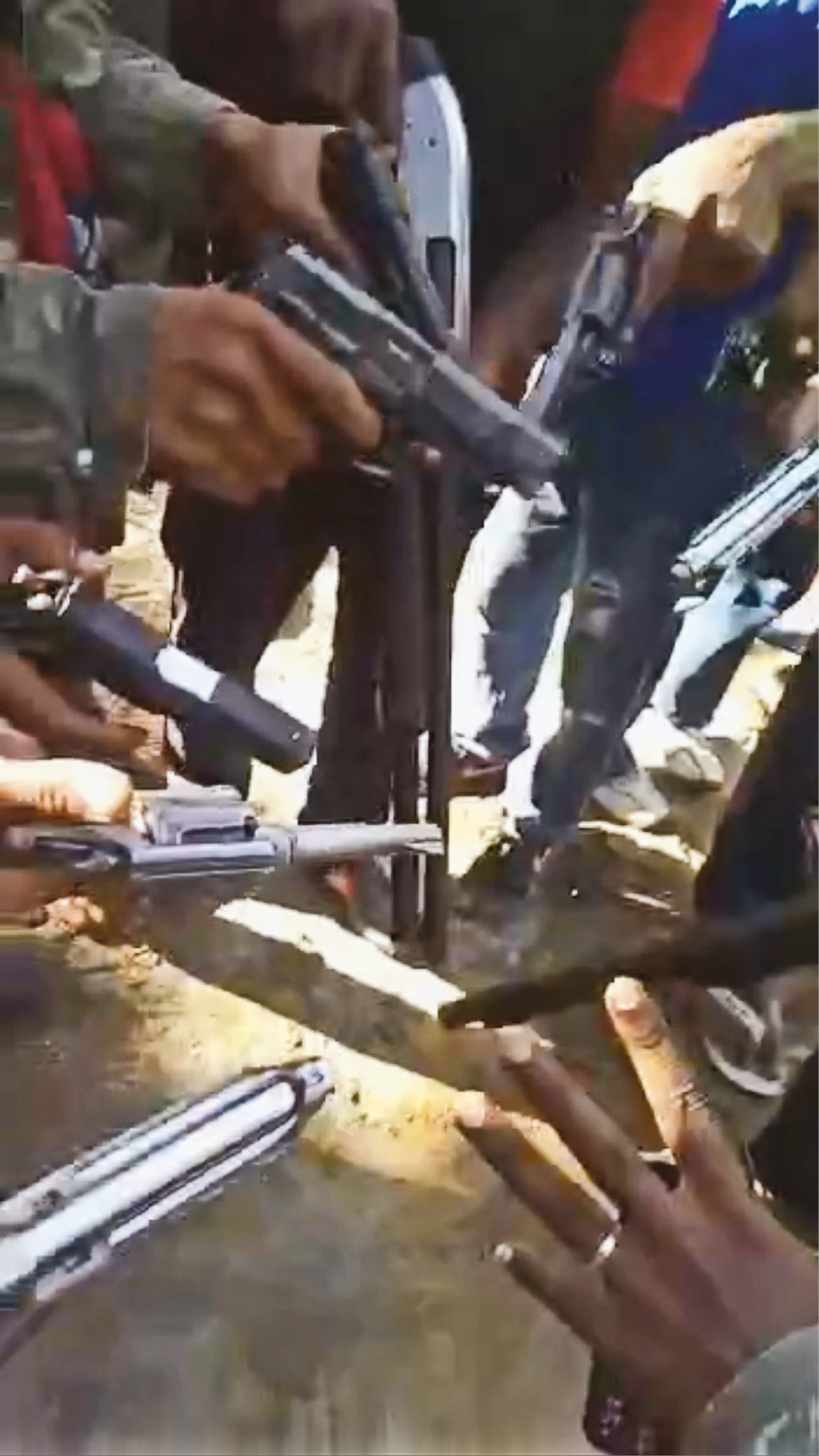Promoting anxiety
Both police and organised crime groups in Balduíno use WhatsApp intensively and in comparable fashions,13 as their operations demand speed, group communication and confidentiality.14 While WhatsApp can be described generally as a sort of ‘Swiss army knife’ – an all-in-one communication tool to connect to groups and individuals – police and criminal cells in Balduíno exploit all these uses and possibilities of the platform, making it a crucial part of their work. The platform helps them quickly co-ordinate among close peers, but it also interconnects individual participants inside broader networks of relationships concerning their professional networks and affiliations. In addition, WhatsApp is also used in a strategic, ‘political’ way – to influence public opinion to favour causes that benefit them.
It is worth remembering that this is a new technology at the settlement – WhatsApp became popular in Balduíno only at the end of 2013 – and both the low-ranking military police in the settlement and local criminals belong to the same low-income working class.
The following section describes the use made of WhatsApp, first by the local police and then by local crime groups.
WhatsApp has become important to police officers working in the settlement as a tool that increases their protection as a group – both when they are together and for individuals off duty. Before WhatsApp, they were limited to using police radio installed on cars and in unit buildings, but they explain that radio communication is not as nearly as efficient as
WhatsApp interconnects the 14 policemen and women of the local unit 24/7, whether they are working or off duty. The platform is not used just in moments of need. The unit’s group provides a form of ongoing report log, in which each participant posts what is currently happening – shootings, accidents, requests for ambulances, bodies found, etc. With this communication, off-duty police (who tend to be more vulnerable, as they are alone) can request immediate assistance directly from their peers, from any place; they can also, depending on the circumstances, be summoned to action. Together with these more intense exchanges centred on the group’s unit, local police are also individually in contact with people from other units; they thus circulate information to co-ordinate support depending on the requirements of each situation. Even as these inter-unit communication exchanges take place, individuals continue to forward information to keep commanding officers aware of developments.
Local criminal groups, like the police units, are in continuous contact internally between each other using WhatsApp. Individually they can also reach other similar groups and organisations with whom they collaborate. Social media allows criminals to co-ordinate activities as a group with privacy, speed and efficiency.
Both police and local criminal organisations also use WhatsApp on occasion to broadcast information to society to influence public opinion. During the 2014 Bahia state police strike, the police that adhered to this political movement judged that media channels were boycotting their action by failing to report their demands and to cover the supposed many disturbances in the unprotected city. They responded to this situation by using WhatsApp, distributing photos of bodies found in crime scenes to personal contacts. These actions increased public anxiety and fear, raising the pressure on government officials to reach an agreement with the police.
Similar content has been circulating in Balduíno lately, with similar results, but this time the sources are local criminal groups. As rivals compete for the control of the local drugs market, and for the channels for distributing drugs to wealthy visitors in nearby tourist resorts, they have turned to social media to intimidate each other (Fig. 6.6). For example, a criminal group may record video messages displaying guns and making

